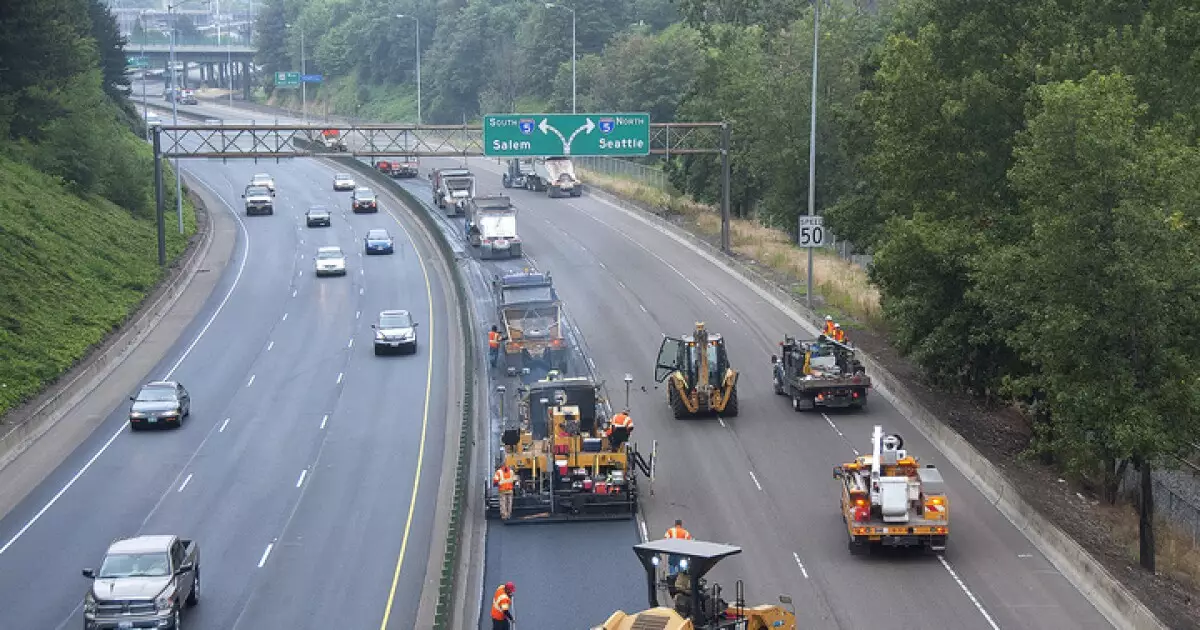The unfolding drama surrounding Oregon’s proposed transportation bill, which aims to impose staggering tax and fee increases totaling $14.6 billion over the next ten years, raises crucial questions about fiscal responsibility and effective governance. Advocates of House Bill 2025 tout it as a crucial step towards revitalizing the state’s aging infrastructure, arguing that the funding will lead to necessary repairs on roads, bridges, and transit systems. However, when a bill of this magnitude is promoted without significant public support—nearly 61% of Oregonians oppose it, according to surveys—it becomes imperative to challenge the underlying motives and feasibility of such sweeping measures.
This bill, supported primarily by Democrats, encapsulates what many see as a penchant for unchecked government spending. The rhetoric of transformation, as voiced by Senator Chris Gorsek, sounds appealing; yet, it begs the question: at what cost are these supposed improvements? Plowing roads and stabilizing bridges are essential services that the state should be providing without burdening taxpayers further. Genuine investments in infrastructure should not hinge on extracting additional revenue from the very citizens who rely on these services.
Political Maneuvering and the Legislative Landscape
The legislative journey of this bill has been riddled with significant political maneuvering, raising eyebrows about the integrity of the process. This larger-than-life proposal gained controversial momentum when Senate President Rob Wagner removed dissenting voices from the Joint Transportation Reinvestment Committee to ensure a smooth passage. These political tactics reveal an alarming trend of silencing legitimate opposition rather than engaging in robust debate and compromise, ultimately undermining the democratic process.
Republican lawmakers and even some Democrats have rallied against what they term the “largest tax hike in Oregon history.” Their counter-proposal elegantly circumvents the service tax conundrum by redirecting existing climate relief funds towards urgent transportation needs, thereby avoiding the problematic notion of increasing taxes for services that should be adequately funded. This raises an essential discussion on whether lawmakers are truly in touch with their constituents or merely pursuing an agenda that benefits their party at the expense of common sense.
The Public’s Sentiment and Political Implications
The resounding disapproval from a majority of Oregonians should not be underplayed. Their voices have been heard during the legislative process, with testimonies emerging against this financial overreach. A critical question comes to the forefront: how can a responsible government ignore the evident discontent among its citizens? Rep. Shelly Boshart Davis raises a valid point when she argues, “Oregonians don’t want to pay more in taxes and fees for government services they should already be getting.” This sentiment resonates across party lines and highlights a fundamental frustration—citizens expect competency from their government without having to constantly dig deeper into their wallets.
It is not merely about the dollars and cents; this proposal symbolizes a larger ideological battle over the role of government in people’s lives. Conservatives advocating for lower taxes and less government intervention stand at odds with a growing faction that seeks to regulate and tax to fund services. The division is stark, and the ramifications of implementing such a significant tax hike could polarize the state even further.
Rethinking Our Approach to Governance
In a supposed age of transparency and accountability, it is perplexing that legislation like House Bill 2025 can emerge with such vehemence without significant public backing. Oregonians are weary of empty promises made by political elites focused on their agenda rather than on the practicalities of governance. As citizens, we must demand a fresh perspective from our leaders—a governance model rooted in accountability, prioritizing fiscal responsibility, and fostering trust with the public.
In a time of economic uncertainty, when inflation and the cost of living continue to rise, it is critical for government officials to demonstrate prudence rather than enforcing drastic tax increases. True leadership lies in presenting practical, workable solutions that can restore faith in our institutions without placing further strain on already burdened taxpayers. The call for transparency, fiscal responsibility, and genuine dialogue must guide us through this contentious debate, ensuring that Oregonians can trust their representatives to act in the best interests of the people they serve.

